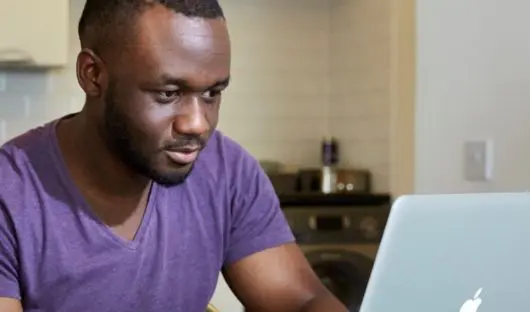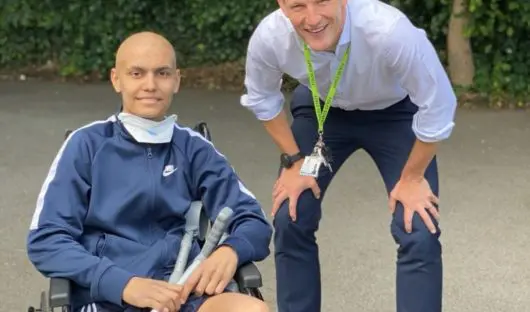Applying for PIP
Personal Independence Payment (PIP) is a benefit to help you live as independently as possible and deal with any extra costs that may come with having a health condition or disability. It replaced Disability Living Allowance for people aged 16 to retirement age who have a health condition or disability, whether in or out of work.
In Scotland, PIP is being replaced by Adult Disability Payment.
To qualify for PIP you must be aged 16 or older – children under 16 can qualify for Disability Living Allowance (DLA) instead.
Qualifying for PIP
Whether you get PIP (or Adult Disability Payment in Scotland) and if so at what level, is based on how your condition affects you, rather than the condition itself. This means that you will need to go through an application process to see what level of support you are entitled to.
Your PIP award won’t start until you have been affected by a health condition or disability for at least three months (known as the ‘qualifying period’) and this must be expected to last for at least another nine months (known as the ‘prospective test’). However, you can apply for PIP before the qualifying period has ended.
The qualifying period starts from when your need for the benefit begins, not from when you first make your claim. In some cases this means you could class it as starting from when your symptoms began, rather than when you were diagnosed.
You can get it on top of Universal Credit or other benefits. Your income, savings, and whether you’re working or not don’t affect your eligibility.
What is PIP made up of?
There are two parts to PIP or Adult Disability Payment, with a standard and an enhanced rate for both components – weekly rates (as of April 2022) are:
- A daily living component: enhanced rate £92.40, standard rate £61.85
- A mobility component: enhanced rate £64.50, standard rate £24.45
You may get one or both of these components, depending on your situation. For the daily living component you must show a need for support or help with one or more specified daily living activities such as cooking, bathing and getting dressed and undressed. With the mobility component you must show a need for support or help with your mobility.
How do I apply for PIP?
To apply for PIP in England and Wales you can call the Department for Work and Pensions (DWP).
Phone: 0800 917 2222
Phone: 0800 917 7777 (for people with speech and hearing difficulties)
Monday to Friday, 8am to 5pm (except public holidays)
The process is different for Northern Ireland.
Contact the Personal Independence Payment (PIP) Centre:
Phone: 0800 012 1573
Textphone: 0800 587 0937
Monday to Friday from 8.00am to 4.00pm (excluding public holidays)
How do I apply for Adult Disability Payment?
You can apply for Adult Disability Payment by contacting Social Security Scotland on 0800 182 2222 (8am to 6pm, Monday to Friday) or visiting the website.
Help is at hand
If you like, you can have someone with you to help you make this call. This person can speak to the DWP on your behalf, as long as you give permission for this during the call.
Frequently Asked Questions
It will help you to have the following information to hand:
- Your full name and date of birth
- Daytime contact number
- National Insurance number
- Your GP, consultant, nurse specialist or social worker’s details
- Any periods spent abroad or as a hospital inpatient
- Your bank details so the money can be paid into your account (PIP is usually paid every four weeks).
The DWP will send you a How your disability affects you form (PIP2) to complete. This form will have a barcode unique to you, and some parts will be completed already based on the information you provided in the call. You will have one month to complete and return the form, though an extension can be requested in certain circumstances.
When you send in your form, you should enclose any medical reports or documentation that will support your claim. For example, a care plan from specialist nurses or social workers, or physiotherapy assessments (make copies just in case anything gets lost in the post).
Your PIP claim can’t be backdated to before the date of claim, but if you return the PIP2 form by the one month deadline then your claim will be treated as having been made when you made the initial telephone call.
Many people will be asked to have a face-to-face or telephone assessment with a health professional. However, there are exceptions – for example if you have a terminal illness. The assessment will be your chance to explain how your condition or disability affects you on a day-to-day basis.
You will be able to have someone with you during the assessment, which will either be held at your home or another meeting point. This could be a family member, friend, partner or a professional.
Special rules are in place for a terminal illness. In some cases, if your cancer is terminal you will be fast-tracked to a guaranteed payment of the enhanced rate of the daily living component of PIP, without having to satisfy the qualifying period or the prospective test. This means you won’t need to have a face-to-face assessment with a health professional to get the daily living component. You will not have to complete the How your disability affects you form. However, you will need to be assessed for the mobility component.
The health professional will assess you on various activities:
For the daily living component
Preparing food and drink
Nutrition
Managing your treatments
Washing and bathing
Dressing and undressing
Communicating verbally
Engaging socially
Making financial decisions
Managing toilet needs
Reading and understanding information.
For the mobility component
Planning and following a journey
Physically moving around.
You will be scored on those activities relevant to you. The health professional will send a report back to the DWP who will use this to help make the decision on your entitlement, level and length of award. You will receive this decision in the post.
If you make a claim for PIP and you aren’t happy with the outcome, remember that you can challenge the DWP’s decision, first by asking them to reconsider and then if necessary by appealing to an independent tribunal. In each case you will need to take action with one month of the date of the decision you are challenging.
The challenge process can take time, but it doesn’t cost anything and there are welfare advisers and others who can support you.
If you are a parent or otherwise responsible for a child or young person in non-advanced education (A levels and below) who gets PIP and you are receiving Universal Credit or Child Tax Credits, these benefits should increase by up to £412 per month after PIP is awarded – make sure you tell the benefit provider about the PIP award.
If you care for someone who gets the daily living component of PIP, then you may be eligible for:
- Carer’s Allowance, if you are earning no more than £132 per week; or
- A carer element in your Universal Credit worth up to £168 per month.
Some (but not all) people who get the mobility component of PIP will qualify automatically for a Blue Badge.
Children of 15 and under still get DLA, but will normally be invited to make a PIP claim around their 16th birthday.
Most adults who were getting DLA before PIP was introduced will be asked to make a claim for PIP as part of the planned migration from DLA, or earlier if:
- they notify the DWP about a change in how their condition affects them; or
- their DLA award is due to end on a fixed date.
Because PIP has different criteria to DLA, there is no assurance that you will get the same level of PIP when your DLA comes to an end.
Do you have more questions?
Contact Young Lives vs Cancer’s welfare advice service on 0800 915 4439 or welfare.advice@younglivesvscancer.org.uk
Alternatively, you may be able to speak to a welfare adviser at your hospital, or contact your local Citizens Advice for more detailed information.
Visit the Government PIP website for a clear and simple explanation of PIP. For information on Adult Disability Payment, visit Citizens Advice Scotland’s website.


